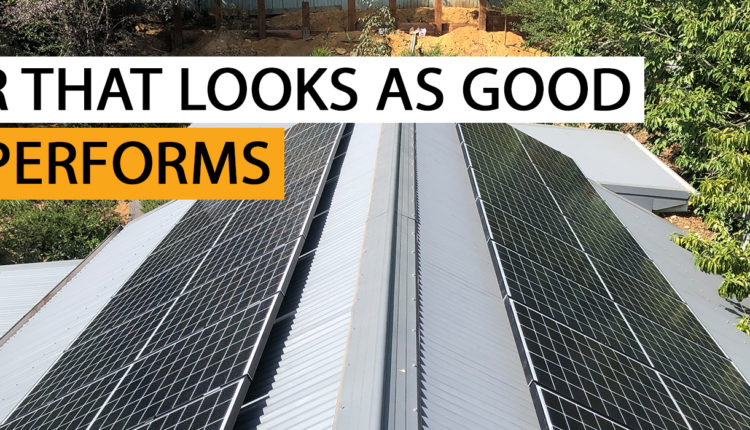Are solar panels worthwhile: will solar power be worthwhile in 2021?
Are You Really Saving Money With Solar Power?
The payback on a solar system has gotten so good that many people are surprised that it is now possible to have a high quality system amortized in just 3 or 4 years.
It wasn't that long ago that solar systems took 7 years or more to break even. Hence, many people now oversize their facility for a slightly longer rate of return, with the advantage that they can use more power by running the air conditioner more often in a hot summer or with the expectation that it will add battery storage in the near future.
Typically, you can save up to USD 400 per year per kW with a solar system. For example, with an 8 kW system, you can save up to $ 3,400 a year and get more electricity in summer than in winter. This can be seen in the following monthly performance graph:
This will also help you choose the brands. Knowing that an 8kW system can save you up to $ 3,400 a year in bills with an 8kW system, your decision is whether to use mid-range panels for a 3-year return on your money or a top-notch system a 5 year return.
When the top-of-the-line system comes with a 25-year product warranty and lasts an average of 7 years longer than cheaper Chinese brands, people often justify a higher expense for the increased reliability and longevity. It depends on how long you plan to stay in your home and how much you plan to spend on a solar system.
One of the most important points is how quickly the system pays for itself. Usually the best scenario is a return on your money in 3 to 4 years. Getting a return on your money in less than 3 years usually requires buying very cheap components that are likely to be less reliable, and an ROI of more than 5 years usually means the system has been oversized. As mentioned above, oversizing your system is often a very good idea, especially if you are planning on adding battery storage.
Most importantly, if you are satisfied with a longer return on your money, you can go for better brands or a bigger system. We can help you with this, and of course it's entirely up to you which way you go. The only tip we'd like to highlight is that with solar, you absolutely get what you pay for, which means increased quality, longevity and system performance. Notes: With solar panels, you get what you pay for.
How much are you willing to pay for a solar system?
If you're only looking to pay $ 4000 for a solar system, it might not be worth it. The cheaper end of the solar industry is plagued by problems, from underperforming panels to nameless manufacturers in China ceasing to do business (along with your warranty) to unprofessional installers not responding to service requests and misleading marketing and fake testimonials … and so on. It can be a nightmare and we know all about it from the dozen of calls we receive every week from households who have been ripped off by other plumbers looking for help.
It's also pretty easy to get $ 500 out of an installation, which no reputable installer would do. However, we do know that this is the case with these cheap solar systems offered by certain installers. You can't put a $ 6,000 5kW system up for sale for $ 4,000. In fact, there are significant differences between the various price points in the solar industry that should be understood before signing up for an installation.
Is solar energy worth it?
The message is simple: if you have the budget for a quality system from a reputable installer, solar power is totally worth it. With the right size, it is possible to get a return on your money in just 3 to 5 years and make a hassle-free investment that will produce clean energy for decades – over 25 years with the better brands. With a 5 kW system, you can save up to $ 50,000 in electricity bills over the life of the system. This money is taken straight from the coal mining books.
In addition, a solar storage system is now available, with which households can operate their house almost exclusively with solar energy. Solar and storage systems are fast becoming the norm as households increase their energy independence and want to maximize household solar energy consumption.
Solaray offers extremely competitive pricing on all of the top brand names. from the best Chinese manufacturers to the best high efficiency modules on the market from companies like LG Solar.
Millions of Australian households now have solar power because the numbers just make sense. If dimensioned correctly, solar energy costs only 5 cents per kWh. Compare that to what you're currently paying for and it quickly becomes clear that solar power is worth the money for most Australian households.



Comments are closed.